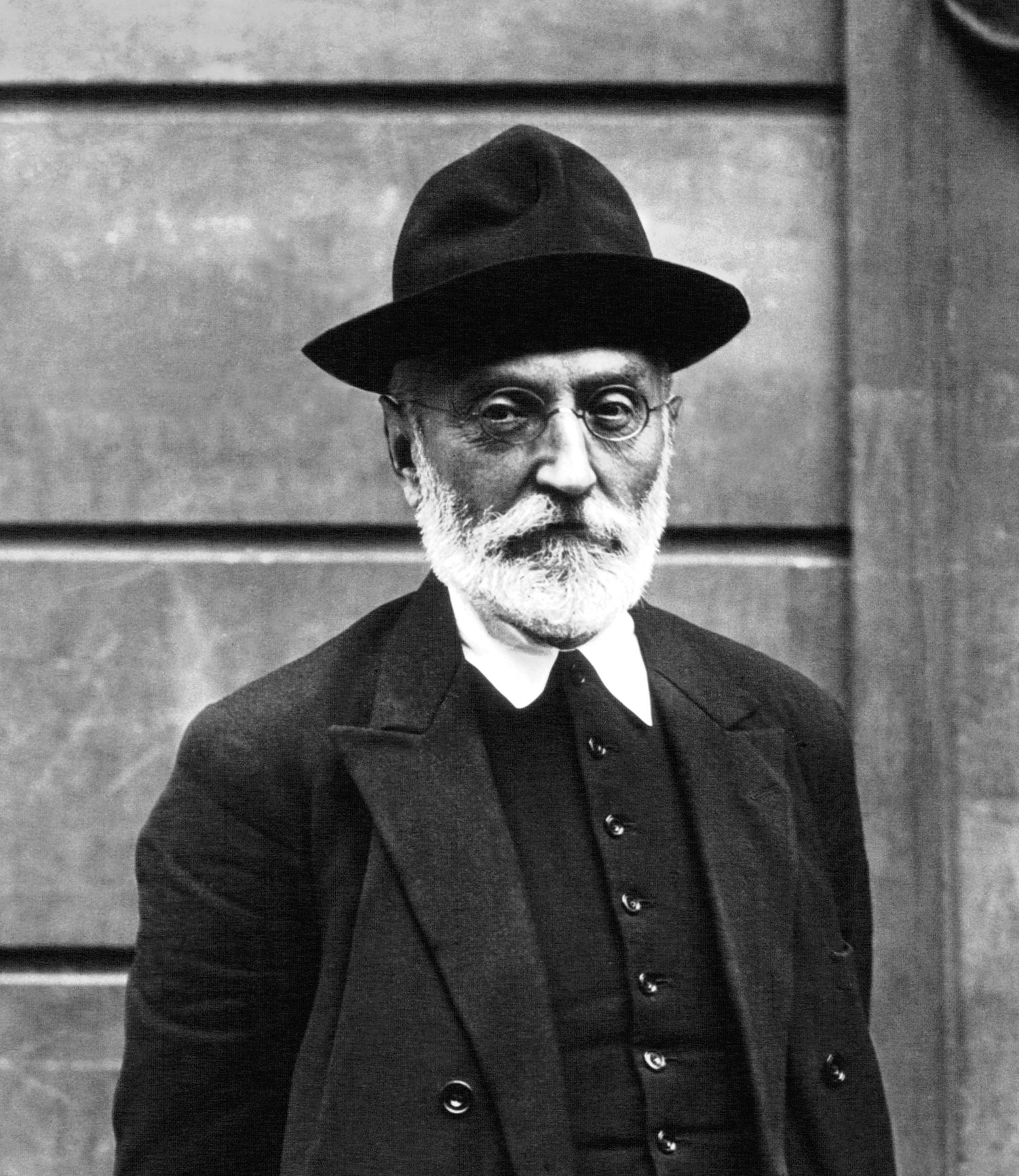Miguel de Unamuno frasi celebri

“Noi uomini viviamo insieme, ma ognuno muore da solo e la morte è la suprema solitudine.”
L'agonia del Cristianesimo
Frasi sulla verit di Miguel de Unamuno
Miguel de Unamuno Frasi e Citazioni
“Accade invariabilmente che il punto di partenza della saggezza sia la paura.”
Origine: Citato in John Lukacs, Democrazia e populismo, traduzione di Giovanni Ferrara degli Uberti, Longanesi, 2006, p. 190.
“Il mestiere dei cristiani non è vendere il pane ma il lievito.”
Origine: Citato in Giacomo Panizza, Capaci di futuro, Rubbettino Editore, 2005.
“Soltanto chi mette a prova l'assurdo è capace di conquistar l'impossibile.”
Origine: Spesso questa citazione viene erroneamente attribuita, in forme simili, a Albert Einstein e Maurits Cornelis Escher, in realtà le prime attribuzioni ai due sono tardive rispetto alla data della loro morte (1997 per Einstein, morto nel 1955 e 2007 per Escher, morto nel 1971).
Origine: Da Vita di don Chisciotte e Sancio Panza (Vida de Don Quijote y Sancho, 1905), traduzione di Antonio Gasparetti, Mondadori, 2006, p. 158 https://books.google.it/books?id=100k18ZHLikC&pg=PA158. ISBN 884249884X
“Chi impone la fede a un altro con la spada, quello che cerca di convincere è se stesso.”
L'agonia del Cristianesimo
“L'essenza dell'uomo è la pigrizia e quindi l'orrore della responsabilità.”
L'agonia del Cristianesimo
“La storia è il pensiero di Dio sulla terra degli uomini.”
L'agonia del Cristianesimo
“Vedo la politica elevata a religione e la religione elevata a politica.”
L'agonia del Cristianesimo
Origine: Citato in Lucrezia Cipriani Panunzio, Quimo-Casey un antieroe, La Fiera Letteraria, n. 17, aprile 1973.
“Colui che vive lottando contro la stessa vita agonizza.”
Origine: Citato in Thomas Merton, Presentazione a Ernesto Cardenal, Canto all'amore, Cittadella Editrice.
Miguel de Unamuno: Frasi in inglese
The Tragic Sense of Life (1913), Conclusion : Don Quixote in the Contemporary European Tragi-Comedy
The Tragic Sense of Life (1913), I : The Man of Flesh and Bone
The Tragic Sense of Life (1913), V : The Rationalist Dissolution
The Tragic Sense of Life (1913), XI : The Practical Problem
The Tragic Sense of Life (1913), X : Religion, the Mythology of the Beyond and the Apocatastasis
The Tragic Sense of Life (1913), IX : Faith, Hope, and Charity
The Tragic Sense of Life (1913), Conclusion : Don Quixote in the Contemporary European Tragi-Comedy
The Tragic Sense of Life (1913), Conclusion : Don Quixote in the Contemporary European Tragi-Comedy
The Tragic Sense of Life (1913), I : The Man of Flesh and Bone
The Tragic Sense of Life (1913), VII : Love, Suffering, Pity
How much substantial truth there is in these gloomy confessions of this man of painful sincerity.
The Tragic Sense of Life (1913), III : The Hunger of Immortality
“To believe in God is to yearn for His existence and, furthermore, it is to act as if He did exist.”
The Tragic Sense of Life (1913), V : The Rationalist Dissolution
Contesto: To believe in God is to long for His existence and, further, it is to act as if he existed; it is to live by this longing and to make it the inner spring of our action.
Contesto: To believe in God is to long for His existence and, further, it is to act as if he existed; it is to live by this longing and to make it the inner spring of our action. This longing or hunger for divinity begets hope, hope begets faith, and faith and hope beget charity. Of this divine longing is born our sense of beauty, of finality, of goodness.
The Tragic Sense of Life (1913), III : The Hunger of Immortality
The Tragic Sense of Life (1913), I : The Man of Flesh and Bone
The Tragic Sense of Life (1913), II : The Starting-Point
Ritschl, Geschichte des Pietismus, book viii., 43
The Tragic Sense of Life (1913), XI : The Practical Problem
The Tragic Sense of Life (1913), Conclusion : Don Quixote in the Contemporary European Tragi-Comedy
The Tragic Sense of Life (1913), X : Religion, the Mythology of the Beyond and the Apocatastasis
The Tragic Sense of Life (1913), Conclusion : Don Quixote in the Contemporary European Tragi-Comedy
The Tragic Sense of Life (1913), Conclusion : Don Quixote in the Contemporary European Tragi-Comedy
The Tragic Sense of Life (1913), I : The Man of Flesh and Bone
The Tragic Sense of Life (1913), IV : The Essence of Catholicism
The Tragic Sense of Life (1913), IV : The Essence of Catholicism
The Tragic Sense of Life (1913), VII : Love, Suffering, Pity
The Tragic Sense of Life (1913), VI : In the Depths of the Abyss
The Tragic Sense of Life (1913), V : The Rationalist Dissolution
